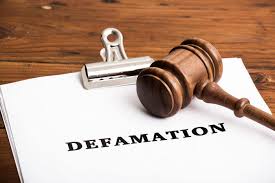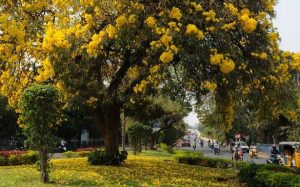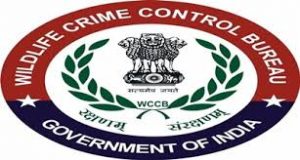Today Current Affairs: 19th February 2021 for UPSC IAS exams, State PSC exams, SSC CGL, State SSC, RRB, Railways, Banking Exam & IBPS, etc
Table of Contents
Greenpeace Southeast Asia analysis Of Cost To The Economy Due To Air Pollution:

Air pollution claimed approximately 54,000 lives in Delhi in 2020, according to a Greenpeace Southeast Asia analysis of cost to the economy due to air pollution.
- Six Indian cities Delhi, Mumbai, Bengaluru, Chennai, Hyderabad, and Lucknow feature in the global analysis.
- Globally, approximately 1,60,000 deaths have been attributed to PM (particulate matter) 2.5 air pollution in the five most populous cities — Delhi, Mexico City, Sao Paulo, Shanghai, and Tokyo.
- The ‘Cost Estimator’ is an online tool that estimates the real-time health impact and economic cost from fine particulate matter (PM 2.5) air pollution in major world cities,
- According to the report, this tool was deployed in a collaboration between Greenpeace Southeast Asia, IQAir, and the Centre for Research on Energy and Clean Air (CREA).
- Using real-time ground-level PM 2.5 measurements collated in IQAir’s database, the algorithm applies scientific risk models in combination with population and public health data to estimate the health and economic costs of air pollution exposure.
- To show the impact of air pollution-related deaths on the economy, the approach used by Greenpeace is called ‘willingness-to-pay.
- Under this, a lost life year or a year lived with a disability is converted to money by the amount that people are willing to pay in order to avoid this negative outcome.
- The cost estimator also sustained the estimated air pollution-related economic losses of ₹1,23,65,15,40,000.
Defamation :

A Delhi court has rejected a criminal defamation case filed by a former Union Minister against a journalist over her tweets accusing him of sexual harassment.
- The Court took into consideration of the systematic abuse at the workplace due to the lack of a mechanism to redress the grievance of sexual harassment at the time of the incident of sexual harassment against the accused journalist took place.
- It was prior to the issuance of the Vishaka Guidelines by the Supreme Court and enactment of The Sexual Harassment of Women at Workplace (Prevention, Prohibition and Redressal) Act, 2013.
Defamation
- In India, defamation can both be a civil wrong and a criminal offence.
- The difference between the two lies in the objects they seek to achieve.
- A civil wrong tends to provide for a redress of wrongs by awarding compensation and a criminal law seeks to punish a wrongdoer and send a message to others not to commit such acts.
- In Indian laws, criminal defamation has been specifically defined as an offence under section 499 of the Indian Penal Code (IPC) whereas civil defamation is based on tort law (an area of law that does not rely on statutes to define wrongs but takes from the ever-increasing body of case laws to define what would constitute a wrong).
- Section 499 states defamation could be through words, spoken or intended to be read, through signs, and also through visible representations.
- These can either be published or spoken about a person with the intention of damaging the reputation of that person or with the knowledge or reason to believe that the imputation will harm his reputation.
- Section 500 of IPC, which is on punishment for defamation, reads, “Whoever defames another shall be punished with simple imprisonment for a term which may extend to two years, or with fine, or with both.”
- Moreover, in a criminal case, defamation has to be established beyond reasonable doubt but in a civil defamation suit, damages can be awarded based on probabilities.
Green Contest :

Hyderabad has won a green contest among cities in India and emerged as one of the ‘Tree Cities of the World’.
- That title has been bestowed by the Arbor Day Foundation and the Food and Agriculture Organization (FAO).
- Hyderabad has been selected for its commitment to growing and maintaining urban forestry under the State government’s Haritha Haram program and its Urban Forest Parks plan.
- With the recognition, the city joins 120 others from 23 countries, including the U.S., the U.K., Canada, and Australia.
- The city was evaluated on five metrics: ‘Establish Responsibility’, ‘Set the Rules’, ‘Know What You Have’, ‘Allocate the Resources’, and ‘Celebrate the Achievements’.
Pariksha Pe Charcha 2021:

The Prime Minister, Shri Narendra Modi will interact online with students, teachers, and parents all over the world during ‘Pariksha Pe Charcha 2021’.
- Pariksha pe Charcha is a programme in which the Prime Minister interacts with the cross-section of Students and Teachers from India and abroad to beat exam stress.
- It is a unique interaction where students, teachers, parents, and the Prime Minister will come together to discuss issues related to exams esp. stress-free examination.
- The first three editions were held at Talkatora Stadium, New Delhi in 2018, 2019 and 2020.
Asia Environmental Enforcement Award-2020 :

The Wildlife Crime Control Bureau (WCCB) has received the Asia Environmental Enforcement Award-2020 awarded by the United Nations Environment Programme (UNEP).
- WCCB got the award twice in three years. Wildlife Crime Control Bureau (WCCB) has been awarded this year under the Innovation category.
- Earlier, the Bureau had received the award in 2018 under the same category.
Wildlife Crime Control Bureau (WCCB):
- Status: A statutory body constituted under the Wildlife (Protection) Act, 1972.
- Parent Agency: Ministry of Environment and Forests.
- Mandate: To combat organized wildlife crime in the country.
- Location: The Bureau has its headquarter in New Delhi and five regional offices in Delhi, Kolkata, Mumbai, Chennai, and Jabalpur.
- WCCB has developed an online Wildlife Crime Database Management System to get real-time data to analyze trends in wildlife crimes across India.
- This system has been successfully used for carrying out operations such as Operation Save Kurma, Thunderbird, Wildnet, Lesknow, Birbil, Thunderstorm, Lesknow-II, etc resulting in huge seizures of Tiger/Leopard Skin/bones, Rhino Horn, Elephant Ivory etc.
Mars 2020 Mission:

National Aeronautics and Space Administration (NASA’s) Perseverance Rover has landed on Mars.
- This was one of the most crucial aspects of the Mars 2020 Mission.
- The mission is designed to better understand the geology of Mars and seek signs of ancient life.
- Objectives:
- Assess ancient habitability.
- Demonstrate technology for future robotic and human exploration.
- Duration: At least one Mars year (about 687 Earth days).
- Perseverance is the most advanced, most expensive, and most sophisticated mobile laboratory sent to Mars.
- It is different from previous missions because it is capable of drilling and collecting core samples of the most promising rocks and soils, and setting them aside in a “cache” on the surface of Mars.
- Launch: 30th July 2020
- Landing: 18th February 2021
- Landing Site: Jezero Crater (an ancient river delta that has rocks and minerals that could only form in water).
All India Surveys On Labour:

Labour and Employment Minister Santosh Kumar Gangwar launched Software Applications and instruction manuals with questionnaires for five All India Surveys on Labour.
- The five All India Surveys are being conducted by the Labour Bureau in Chandigarh.
- These five surveys being undertaken by Labour Bureau are
- All India Survey on Migrant workers,
- All India Survey on Domestic Workers,
- All India survey on employment generated by Professionals,
- All India survey on employment generated in Transport Sector and
- All-India Quarterly Establishment based Employment Survey (to assess the employment situation in establishments with more than 10 workers and also less than 10 workers).
- Labour Bureau, an attached office of the Ministry of Labour& Employment, has been at the forefront in fulfilling the data needs of various stakeholders in the field of labour and employment since 1920.
Separate MSP Guidelines For Sugar Mills:

The Ministry of Consumer Affairs, Food, and Public Distribution issued separate guidelines for sugar mills and cane commissioners in regards to the sale of sugar below the Minimum Selling Price (MSP) of Rs 3,100/- per quintal.
- To control the constant slide in ex-mill prices of sugar, the central government had in June 2018 specified the concept of MSP for sugar.
- Back then the MSP was fixed at Rs 2,850/- per quintal which was subsequently raised to Rs 3,100/- per quintal.
- Along with MSP, the center had also fixed mill-wise sales quota.
- Mills who breached either of the conditions were liable for action under the Essential Commodities Act, 1955 which would include a fine as well as a jail term(ranging from 3 months to 7 years) or both.
- These out-of-box measures were brought in to arrest the constant slide of sugar and to keep the demand-supply ratio to a safe limit.
- It was reasoned that both these measures would help mills generate enough revenue to pay their farmers the Fair and Remunerative Price (FRP) for cane purchased from farmers.




